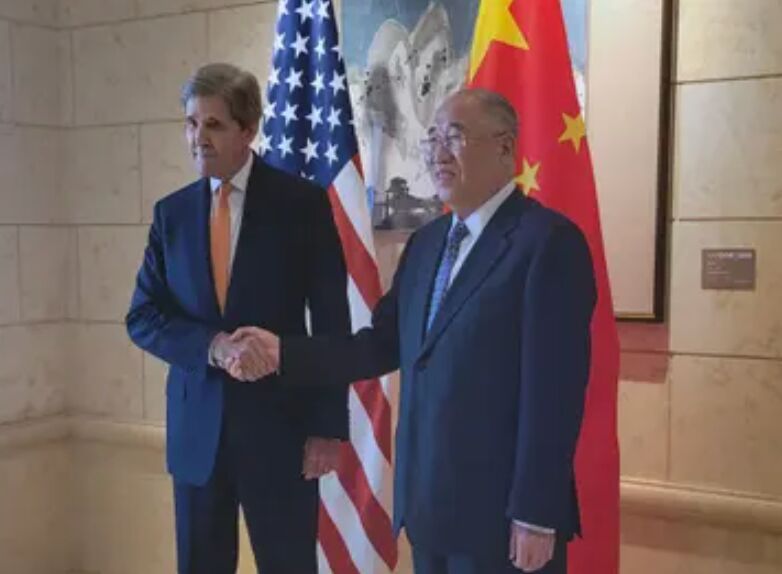US Climate Envoy John Kerry Breaks Stalemate with China, Revives Talks on Planet-Warming Emissions
US climate envoy John Kerry holds four hours of talks with Chinese counterpart in Beijing, emphasizing the need for action on coal and methane pollution. China expresses willingness to collaborate on climate change. The talks signify a renewed commitment to climate collaboration between the two largest greenhouse gas emitters.
US climate envoy John Kerry held four hours of talks with his Chinese counterpart in Beijing on Monday, marking a significant step forward in reviving stalled diplomacy on reducing planet-warming emissions.
The talks come after a pause in climate negotiations between the US and China last year due to tensions surrounding a visit by then-speaker of the US House of Representatives, Nancy Pelosi, to Taiwan.
Despite ongoing disagreements on issues such as Taiwan, Kerry has maintained relatively amicable relations with China throughout his tenure. In his meeting with Chinese counterpart Xie Zhenhua, Kerry emphasized the urgent need for action, particularly in addressing coal and methane pollution.
Taking to Twitter after the talks, Kerry reiterated the importance of the world's two largest economies working together to combat the climate crisis and limit global warming.
China responded by acknowledging that climate change is a common challenge faced by all of humanity. The country expressed its willingness to engage in dialogue with the United States on climate-related issues and to collaborate in meeting the challenges presented by climate change.
Chinese foreign ministry spokesperson Mao Ning stated that these efforts are aimed at improving the well-being of current and future generations. Prior to the talks, US National Security Advisor Jake Sullivan emphasized that every nation, including China, has a responsibility to reduce emissions. He urged China not to hide behind its developing nation status and to take more significant action to cut emissions.
Sullivan also called on the international community to encourage and pressure China to make more substantial efforts in reducing emissions.
China has historically used its developing nation status as a justification for its high emissions, but Sullivan stressed the need for continued work in this area. This sentiment echoes the growing global consensus that all countries must contribute their fair share to address the climate crisis.
The talks between Kerry and his counterpart demonstrate a renewed commitment to climate collaboration between the United States and China. As the two largest greenhouse gas emitters in the world, their cooperation is paramount in achieving global climate goals.
With both countries recognizing the urgency of the situation, there is hope that future discussions will result in concrete actions to mitigate the devastating effects of climate change.




